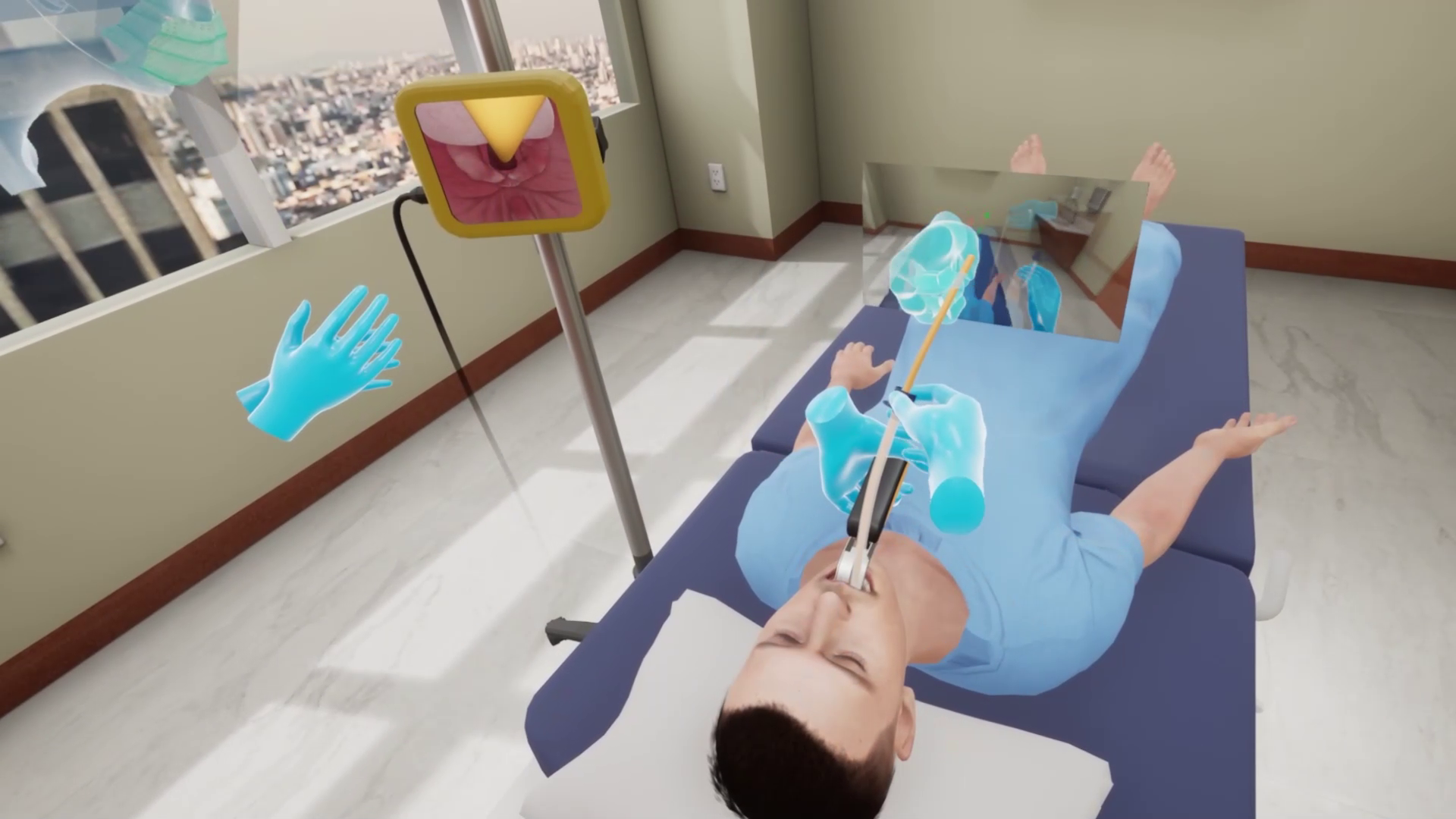Bougie Intubation
Bougie intubation is performed as part of an emergency procedure towards establishing airway patency in patients with compromised airways. The procedure involves inserting a Bougie in to the glottis to facilitate insertion of an endotracheal tube.
Using this VR simulation for Bougie Intubation, healthcare practitioners can practice the Bougie intubation procedure in a realistic environment with a virtual patient. With both training and assessment modes, learners can perform the procedure and assess themselves on their performance.
- Use standard technique to insert Bougie through vocal cords
- Use clinically approved methods to feed ET tube on Bougie
- Confirm placement of tube in trachea to remove Bougie and laryngoscope
- Connect and confirm placement of bag-valve mask
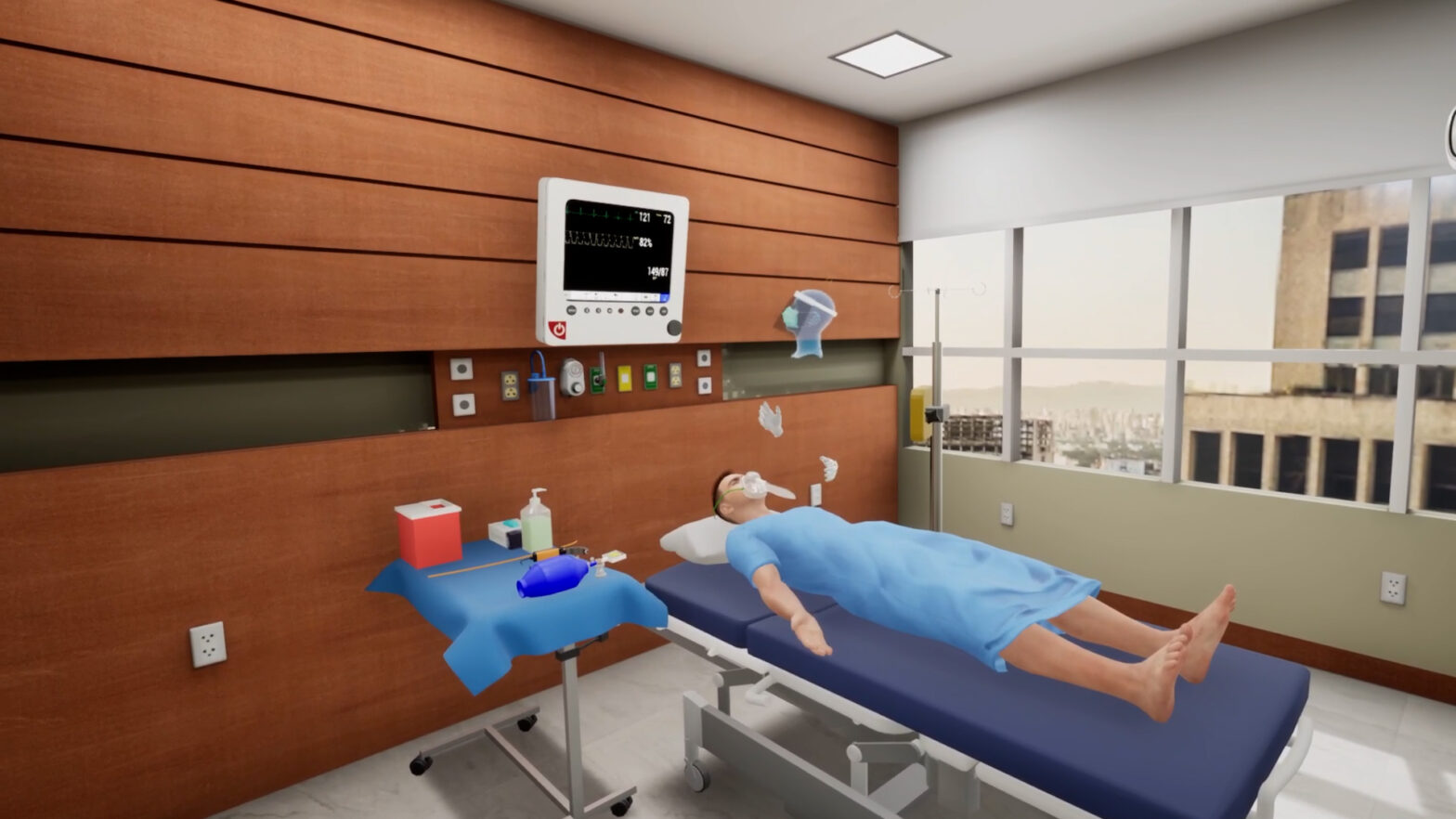
- American College of Emergency Physicians. (n.d.). Bougie-assisted endotracheal intubation. Retrieved from https://www.acep.org/clinical–practice-management/bougie-assisted-endotracheal-intubation
- Medscape. (2023). Bougie-assisted intubation technique. Retrieved from https://www.medscape.com/viewarticle/bougie-assisted-intubation
Customize Your Program
Get rid of the editor. Adopt in-VR customization.
MedVR Education is bringing to you in-VR customization that will enable you to put together your own simulations by making selections from a wide range of feature choices.
- Select patient from a diverse background
- Choose preferred virtual environment
- Select equipment used in the procedure
- Modify difficulty level of the assessment mode
- …..many more to come
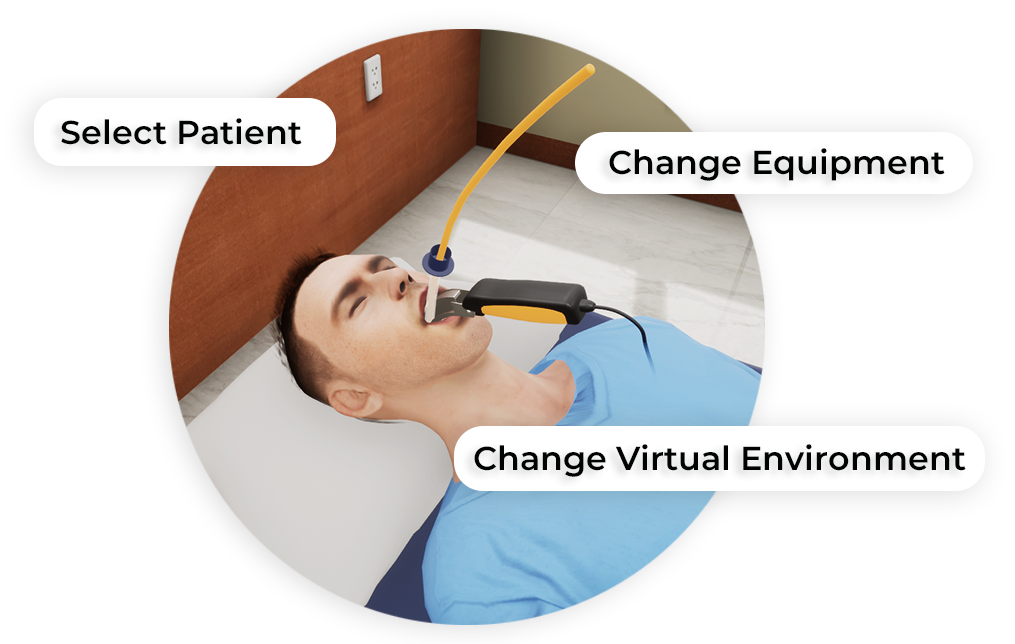
 Multi-player
Multi-player
Sessions Physics-based Interaction
Physics-based Interaction
Core Skills Training
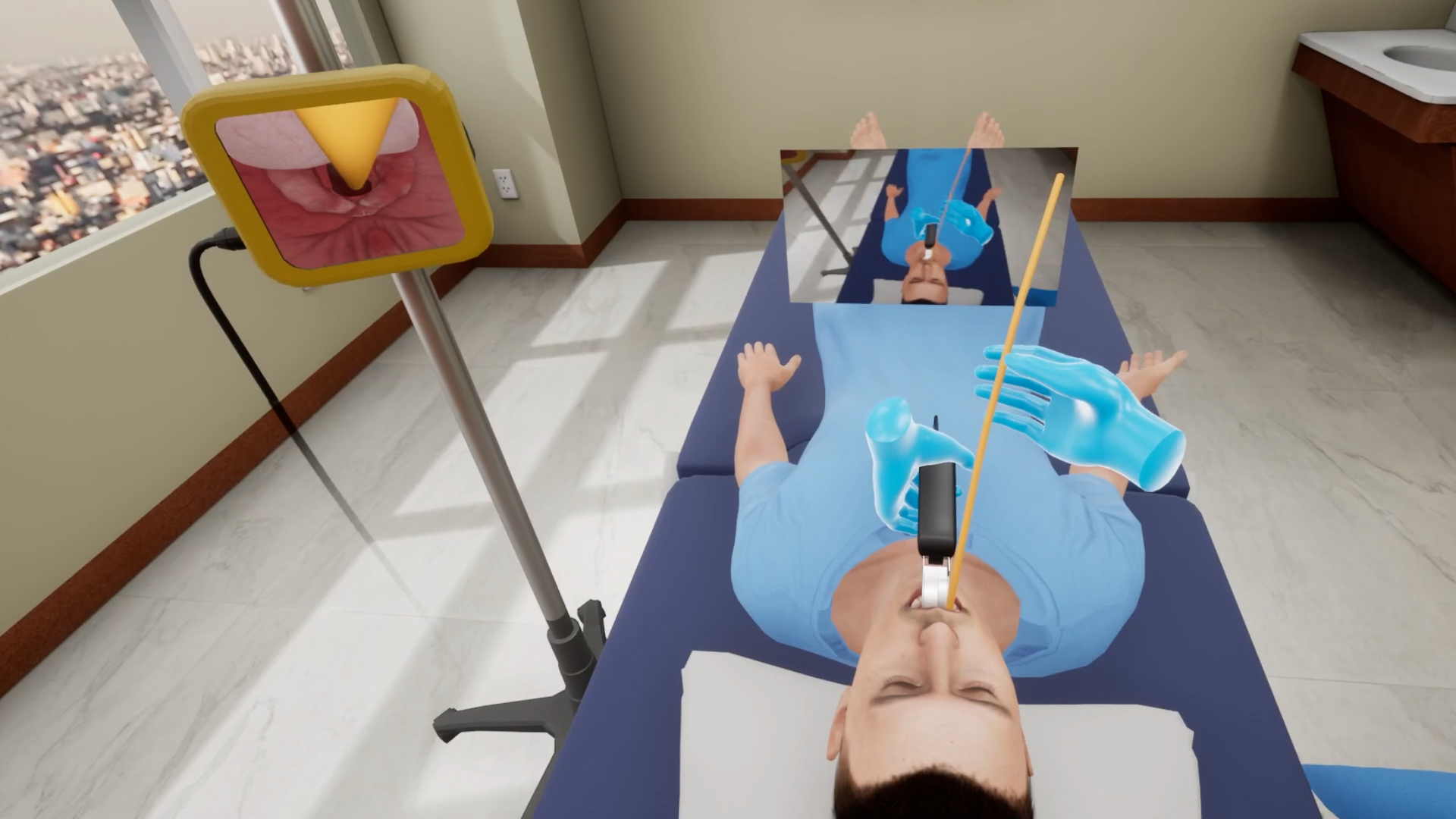
Performing Bougie Intubation
As a part of this Bougie Intubation procedure, the learner will begin with the laryngoscope in place and by placing an angled tip of the Bougie through the vocal cords. The learner will advance the Bougie down the trachea until met with resistance; the bounce of the tracheal rings. Holding the laryngoscope in place, an assistant will load the endotracheal tube onto the end of the Bougie. Once the endotracheal tube has advanced into the oropharynx and past into the trachea, the Bougie and laryngoscope will be removed and the balloon of the endotracheal tube inflated. The learner will attach a bag-valve-mask and confirm placement using auscultation and end-tidal CO2. All necessary affordances are provided to complete the procedure with efficiency.
Training
With prompts, guidance and affordances learners are hand-held through the process to practice the procedure in a virtual environment with a virtual patient.
- Photorealistic virtual environment
- Physics-based interactions
- Detailed instructions
- Adequate affordances to assist in task completion
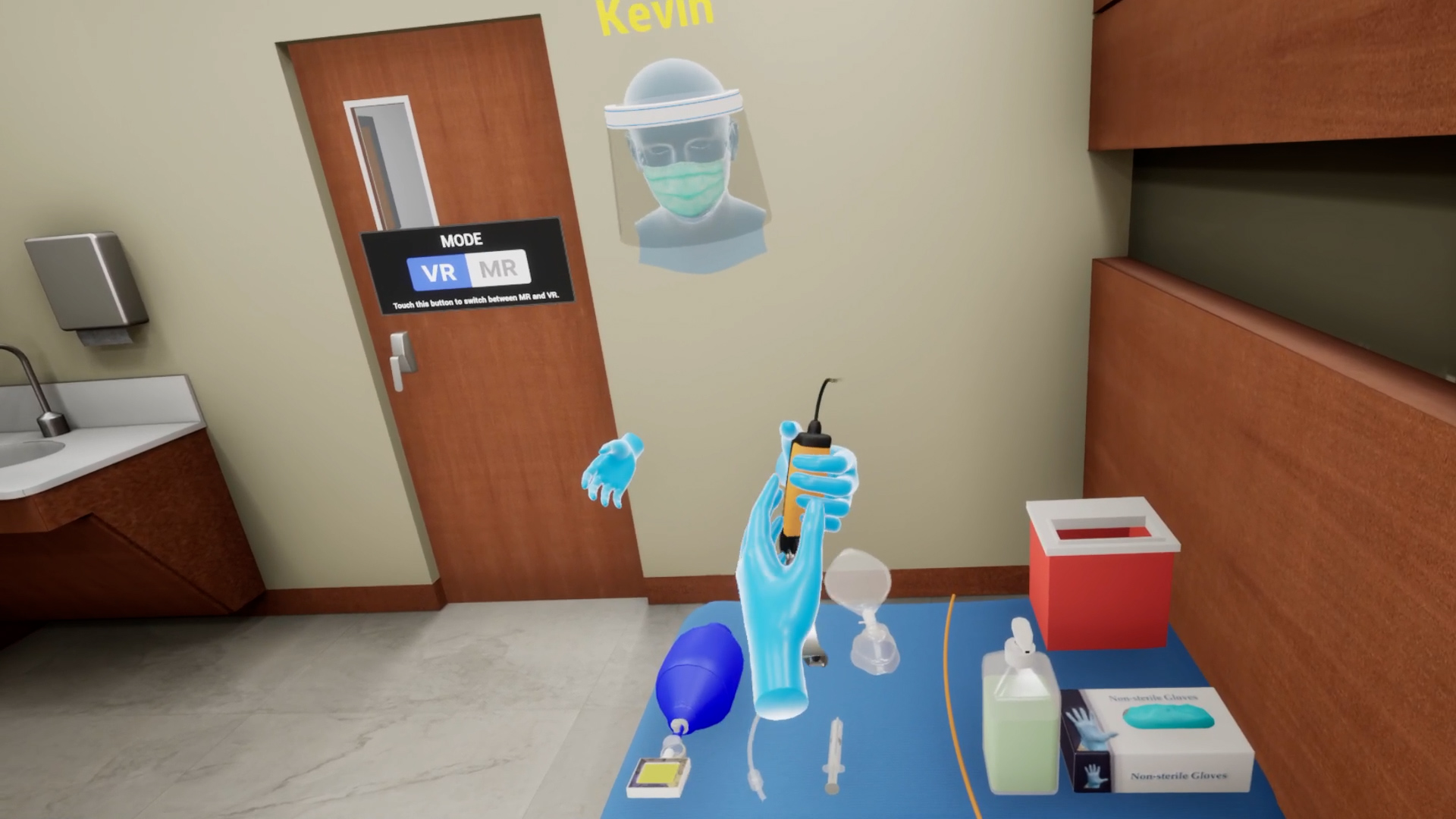
Assessment
Test acquired skills to perform the procedures from start to finish without prompts. An incorrect step will take the learner back to the start to start afresh.
- Live scoring
- Instant feedback
- Adequate affordances for efficient performance
- Time tracking to monitor activity completion
